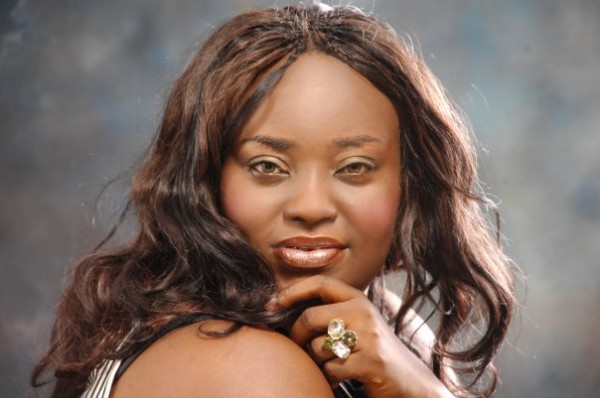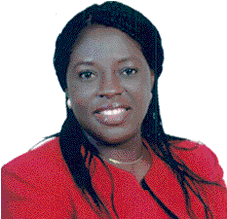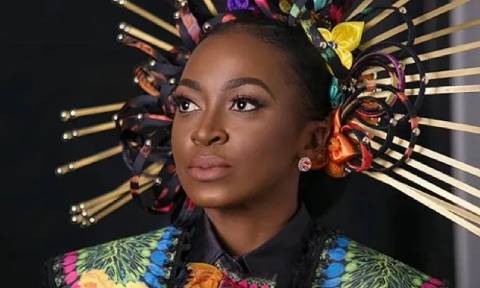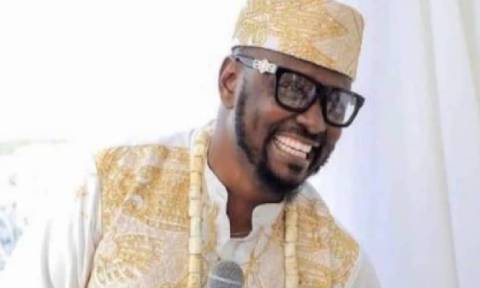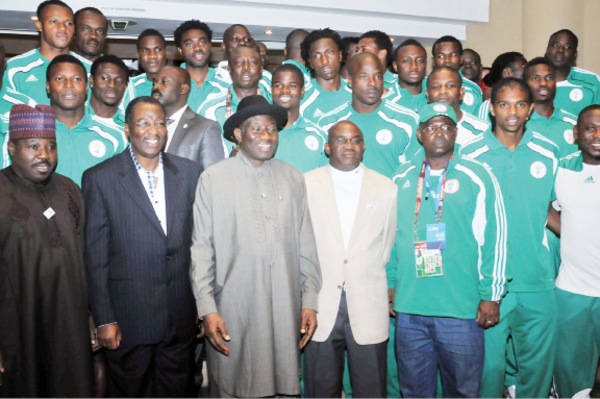
Following intense pressure from within Nigeria and threat of sanctions from world football governing body FIFA, the president, Goodluck Jonathan, yesterday reversed himself on the decision to withdraw Nigeria’s national teams from international competitions for two years.
The president’s decision came just hours before the expiration of FIFA’s Monday July 5, 2010 6pm deadline for Nigeria to rescind its decision or face stiff penalties from the football governing body.
Before the decision was taken by government, President Jonathan had met for hours in the Presidential villa with officials of the Nigeria Football Federation (NFF) led by its acting president, Aminu Maigari, who were accompanied to the meeting by Sports minister, Ibrahim Bio and the Director General of the National Sports Commission (NSC), Patrick Ekeji.
The NFF officials were said to have apologised to the president for the shoddy performance of the Eagles.
The apology that changed everything
A statement released later by Presidential spokesman, Ima Niboro, said “The Nigerian Football Federation at a meeting with President Goodluck Ebele Jonathan today tendered unreserved apology to the President and the Nigerian people on the dismal performance of the country’s football team, the Super Eagles, at the World Cup.
“They also informed the President of their decision to disband the team, and address the numerous shortcomings evident in the management of football in Nigeria. They assured the President of their commitment to evolving an enduring football development programme, and grow a new senior national team that will bring glory, rather than consistent embarrassment to Nigeria on the world stage.”
According to him, they informed Mr. President that removing the former leadership of the NFF, and replacing it with an interim leadership is the first step they have taken to put their own house in order.
The listening president?
Mr. Niboro said the decision by President Jonathan to un-ban the Eagles was taken against the backdrop of pleas by Nigerians
“Based on these assurances, and the appeals of well-meaning Nigerians, including former leaders, President Jonathan has decided to review the earlier two-year ban on the country from all international football competitions,” he said. “This review would enable other categories of Nigerian players participate in global football competitions, while a new senior national team is being developed.”
At the meeting, the President also directed the sports minister to call a meeting of all relevant stakeholders to resuscitate football academies and other talent spotting outlets to produce a new crop of footballers and other sportsmen for the country.
Waiting for FIFA
The decision to reverse the ban on the Eagles came on the heels of the impeachment of NFF President Sani Lulu, one of his vice presidents Amanze Uchegbulam and Technical Committee Chairman, Taiwo Ogunjobi on Saturday night by nine members of the NFF executive committee.
The decision to sack the trio was taken, it was learnt, in order to convince President Jonathan that the board is sufficiently remorseful about not only Nigeria’s poor showing at the World Cup in South Africa but for the slipshod manner football has been administered in the country.
Nigeria’s latest decision has been communicated to FIFA, but the Switzerland based body has yet to react.
Early yesterday, the organisation’s president, Sepp Blatter, told a news conference in South Africa that diplomatic options were being pursued to resolve the conflict. He said “adequate steps” were being taken to settle the matter and tha “We do hope that everything comes back to normal.”
A relief
President Jonathan’s volte face will come as relief to many Nigerian football fans. While the decision to seal up the offices of the NFF had been applauded by Nigerians, the withdrawal of Nigerian national football teams from international football competition, had met with strong disapproval. Many believe the resulting sanction from FIFA, had government not changed its mind, would have set Nigerian football back by several years.
Nduka Ugbade, a former Nigerian international, says President Jonathan’s change of mind is salutary and hopes FIFA finds it acceptable. “I am glad that reason prevailed in the end. Some of us had been worried by the likely impact of the withdrawal from international competitions on a generation of footballers. If the effect of the ban fell on members of the Eagles alone, it would perhaps have been understandable. But if FIFA banned Nigeria, young players, male and female coming through the ranks would be affected. A lot of careers would be destroyed and many set back. So, I thank President Jonathan for listening to the cry of Nigerians.”
